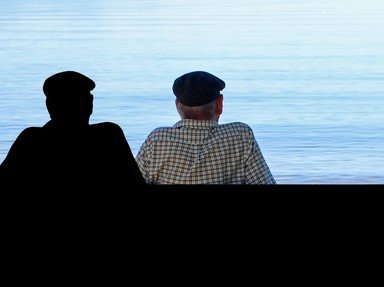Quiz Answer Key and Fun Facts
1. Adolph Hitler became Chancellor of Germany in 1933. Who was Hitler's immediate predecessor as Chancellor?
2. Abraham Lincoln was the second presidential nominee of the Republican Party, and the first to win the presidency. Who was the Grand Old - or Young - Party's first nominee, in 1856?
3. John Marshall made law - and history - as the longest-serving Chief Justice of the United States Supreme Court. Who was his immediate predecessor as Chief Justice?
4. Charles de Gaulle became President of the French Republic (and co-prince of Andorra) in 1959. Who was his predecessor (in both offices)?
5. J. Edgar Hoover was Director of the U.S. Bureau of Investigation (later the Federal Bureau of Investigation; "FBI") from 1924 to 1972. Who was his predecessor as Director of the Bureau?
6. In 1906, U.S. President Theodore Roosevelt was awarded the Nobel Peace Prize for his work in ending the Russo-Japanese War. Who was awarded the Prize in 1905?
7. William the Conqueror was Duke of Normandy before becoming King of England in 1066. Who was William's father and immediate predecessor as Duke of Normandy?
8. Charlemagne was King of the Franks before being crowned "Imperator Romanorum" (whatever that may have meant) by the Pope in 800 AD. Who was Charlemagne's father and immediate predecessor as King of the Franks?
9. Lorenzo de' Medici - Lorenzo the Magnificent - was a scholar, statesman and patron of the arts in Renaissance Florence. Who was Lorenzo's father and prior patriarch of the Medici family?
10. Peter the Great (Peter I) was a towering figure in the history of Russia. Who was his immediate predecessor as Tsar of Muscovy?
Source: Author
ignotus999
This quiz was reviewed by FunTrivia editor
bloomsby before going online.
Any errors found in FunTrivia content are routinely corrected through our feedback system.
